The project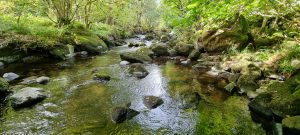
This 5-year project which will finish in 2026, aims to restore the River Kent Special Area of Conservation (SAC) and Site of Special Scientific Interest (SSSI). How? Through habitat improvement works largely focusing on providing habitats suitable for fish (including salmon and trout), freshwater pearl mussels and white-clawed crayfish. The project has four partners: Natural England, South Cumbria Rivers Trust, Freshwater Biological Association and the Environment Agency.
Our objectives are very clear – monitor, conserve, protect, rehabilitate and improve the biodiversity of rivers and streams within the Kent catchment. More specifically this includes riparian/in-channel improvements, fencing, fish refuges, green engineering, tree planting, embankment and revetment removal, de-culverting, weir removal and more. Furthermore, we will also positively engage with local communities, schools and recruit volunteers to help with practical delivery.
So, what have we been up to?
Practical work
The project team has been busy this year delivering a wide range of restoration and volunteer days in the catchment.
Fish refuges
We have installed fish refuges across the catchment. What are fish refuges I hear you say? Well, they are either completely felled or partially felled trees positioned within the channel, that put woody material back into our rivers and becks. These are positioned half the width of the channel or less, so movement and access are still available. They provide crucial habitats for fish, invertebrates, birds and other wildlife; providing shade, shelter and clean gravels for fish of all life stages to use. These are secured into place using 10-tonne steel cable – that way they won’t disappear downstream. Previous fish refuges remained in place post Storm Desmond!
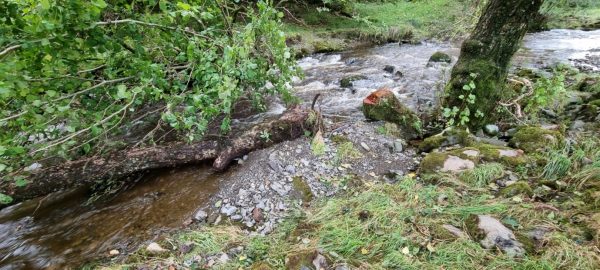
Figure 1: After a short period, new gravels deposit where they weren’t before, forming new gravel bars and additional in-channel habitats. Photo taken September 2023, one month after installation.
Tree planting
2,350 trees were planted across the catchment in 2023. In Longsleddle, 24 Year 4 children and accompanying adults from St Thomas’ Primary School helped to plant a mixture of native willow, alder and birch trees. Volunteers from local communities also came out to various sites in the catchment and planted more native trees, giving a whopping 86 volunteer hours to the project. Once these trees have matured, they will provide shade to the watercourse over the summer months, helping to mitigate the impacts of climate change.
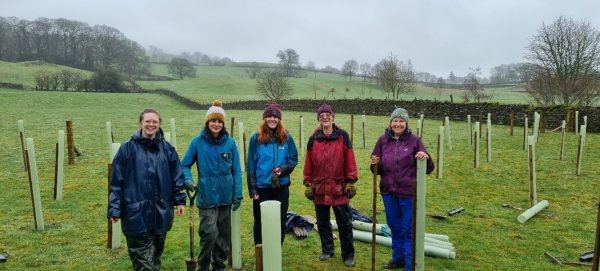
Leaky Dams
We organised a volunteer day to construct several leaky dams to help slow the flow and reduce nutrient runoff from a nearby road entering the watercourse. There were 9 volunteers for the day and they all had a really enjoyable experience! This Natural Flood Management technique has a range of different benefits.
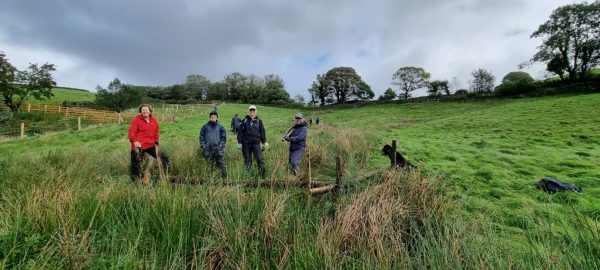
Fish Surveys
As part of our ongoing monitoring programme, we carry out fish surveys of the becks and rivers. These fish surveys are important as they help us to understand the current fish populations throughout the catchment and provide crucial evidence to show how our restoration works are having a positive impact on increasing fish numbers.
As part of a survey, we record the different species caught, measure them and carry out a visual inspection to see if they look healthy before releasing them back into the river.
SCRT conduct fish surveys each summer between July and September and volunteer help is vital. We had a few issues with high river levels in the summer, meaning we couldn’t survey as much as we hoped. Yet, 7 volunteers donated 40 hours in 2023 and we have more comping up in 2024 – so get in touch if you want to join in! It really is a fabulous opportunity to learn more about our work, get hands on and see some amazing fish species up close. It’s also a great way to see how restoration techniques really make a difference to fish abundance and species in our rivers.
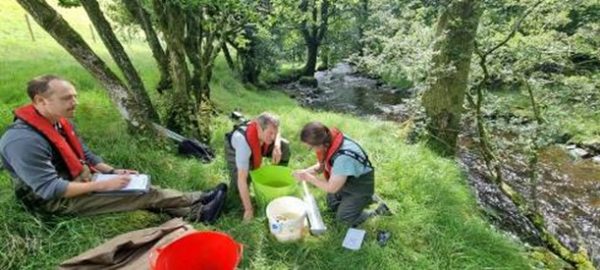
Figure 2: Volunteers measuring and recording fish caught from a fish survey on the River Kent, 2023.
Fencing
We have installed over 2.5km of riparian fencing for landowners and farmers to keep livestock safe and out of rivers and becks. As such, we also provide access to water for livestock, whether that’s a drinking water point, solar powered troughs or newly trialled papa pumps. (Intrigued? An upcoming blog will explain more). Simple interventions like these reduce the amount of fine sediment and excess nutrients going into our rivers, which helps improve overall water quality.
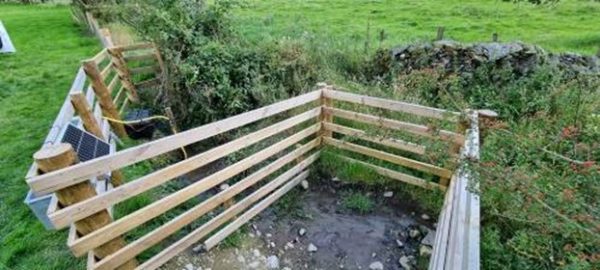
Figure 3: Drinking water point for livestock to access a beck, with an additional solar powered trough.
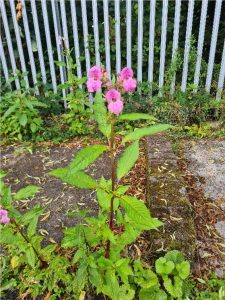 Invasive species
Invasive species
Sammy, our Invasive Non-native Species Officer has been highly active this summer with the help of 276 volunteer hours tackling Himalayan balsam in the Kent catchment. This mammoth effort by wonderful volunteers has led to approximately 35,000 Himalayan balsam plants removed from the catchment.
Engagement
In 2023 we engaged with two schools: Grayrigg CE Primary and St Thomas’ Primary, Kendal.
At Grayrigg, Years 3,4,5 and 6 got to learn all about the LIFE project, how special the Kent catchment is and what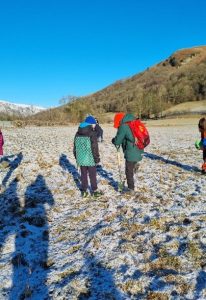 amazing species can be found. Moreover the children got to hear about river restoration and even had a go at restoring a river themselves. Towards the end of the summer term Years 3 & 4 walked down to Lambrigg Beck and spent a glorious morning investigating freshwater invertebrates.
amazing species can be found. Moreover the children got to hear about river restoration and even had a go at restoring a river themselves. Towards the end of the summer term Years 3 & 4 walked down to Lambrigg Beck and spent a glorious morning investigating freshwater invertebrates.
St Thomas’ Year 4 spent two days planting 600 trees in Longsleddale, braving cold weather and frosty conditions.
Project Officer Emma has been involved in a number successful and informative soil health workshops in the catchment. Farmers and landowners in the Kent catchment attended Optimising Farm Resources: Soil, Plants, Livestock, led by Charlie Morgan (Grassmaster Ltd).
Additionally, the project hosted an event led by Neils Corfield looking at how to improve soil structure, what type of grasses to sow and how to alleviate compaction. Attendees learnt that if a soil is free draining then you are more likely to receive a larger yield of crop, whether that’s arable or higher weights gained on livestock.
As an aside, if this sounds like something you’d be interested to learn more about – there is another talk coming up by Neils Corfield at the end of January in the Duddon catchment. Contact hannah@scrt.co.uk for more information.
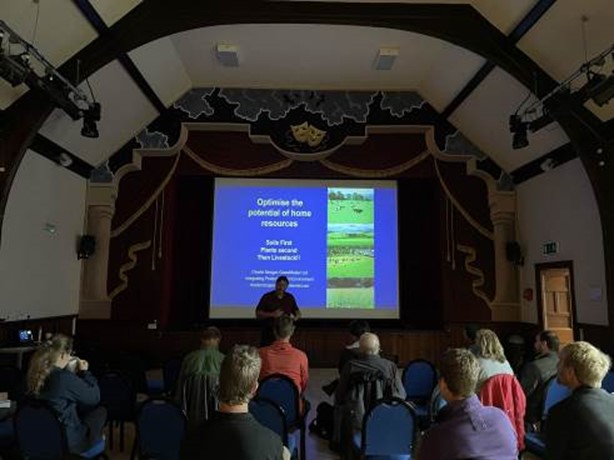 Charlie Morgan leading a soil health workshop
Charlie Morgan leading a soil health workshop
Collaboration
Emma and Sammy gave a public talk about the R4ever Kent project and invasive species at Fell Bar Kendal, as part of a collaboration between Fell Brewery and SCRT. Fell Brewery have kindly agreed to donate 5p of every pint of Ghyll sold to SCRT.
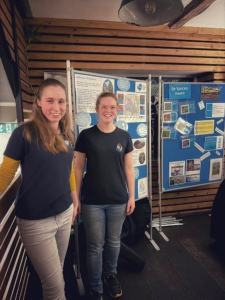
This will help deliver river restoration and habitat improvement works in the Kent catchment. The Fell Brewery team have already joined us to plant trees along the river Kent and will be looking to escape into the hills to help with more practical delivery in 2024!
This project is truly a team effort. All of us here at SCRT would like to thank our amazing volunteers and all those who helped the project have such a successful year. You clocked in 412 volunteer hours!
Now, let’s see if we can improve that in 2024 – if you would like to support the project, just get in touch.
Emma Wright, LIFE R4Ever Kent Project Officer
South Cumbria Rivers Trust
